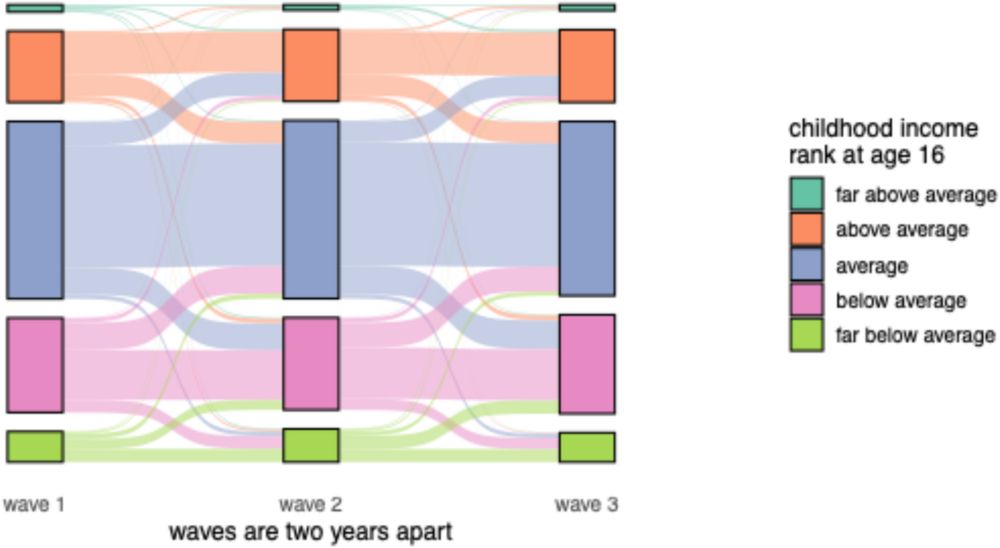Join the Brain Resilience Study team and support a major INN project on brain health and aging. If you're passionate about collaborative team science and multimodal data collection, submit your application to inn@sfu.ca by Nov 28th. Learn more: shorturl.at/QMFV0
Join the Brain Resilience Study team and support a major INN project on brain health and aging. If you're passionate about collaborative team science and multimodal data collection, submit your application to inn@sfu.ca by Nov 28th. Learn more: shorturl.at/QMFV0
Hear from @kiransoma.bsky.social, who was recently elected as a Fellow to the Royal Society of Canada. @psych.ubc.ca @src-rsc.bsky.social
Read more: www.arts.ubc.ca/news/two-art...
Hear from @kiransoma.bsky.social, who was recently elected as a Fellow to the Royal Society of Canada. @psych.ubc.ca @src-rsc.bsky.social
Read more: www.arts.ubc.ca/news/two-art...
With current technology, it is impossible to tell whether survey respondents are real or bots. Among other things, makes it easy for bad actors to manipulate outcomes. No good news here for the future of online-based survey research

With current technology, it is impossible to tell whether survey respondents are real or bots. Among other things, makes it easy for bad actors to manipulate outcomes. No good news here for the future of online-based survey research
Friday, March 6, 2026, 8:00 am - 6:00 pm, Salon F
The workshop is open to all: experience with sleep research is not required. Register here: isrw.bio.uci.edu Registration Deadline, February 15th
@cogneuronews.bsky.social #SleepRelay

Friday, March 6, 2026, 8:00 am - 6:00 pm, Salon F
The workshop is open to all: experience with sleep research is not required. Register here: isrw.bio.uci.edu Registration Deadline, February 15th
@cogneuronews.bsky.social #SleepRelay

Friday, March 6, 2026, 8:00 am - 6:00 pm, Salon F
The workshop is open to all: experience with sleep research is not required. Register here: isrw.bio.uci.edu Registration Deadline, February 15th
@cogneuronews.bsky.social #SleepRelay
www.brainpizza.com/p/from-campf...
#dublin #dbf #stories #cognition #norm #culture #psychscisky #neuroskyence

www.brainpizza.com/p/from-campf...
#dublin #dbf #stories #cognition #norm #culture #psychscisky #neuroskyence
🧠 Did you know that kids remember time differently than adults? Our new preprint review w/ @drjeni-mdlab.bsky.social discusses the real implications for juvenile justice & why we need to ask about timing in ways that match kids' developing brains ⚖️
Paper: osf.io/preprints/ps...

🧠 Did you know that kids remember time differently than adults? Our new preprint review w/ @drjeni-mdlab.bsky.social discusses the real implications for juvenile justice & why we need to ask about timing in ways that match kids' developing brains ⚖️
Paper: osf.io/preprints/ps...

We strongly encourage ORCIDs & mandate them for corresponding authors. It adds admin 🫠, but it benefits especially people who a) have frequent names, b) use a moniker that is a transcription of their names in Roman letters, c) do not have English institutional websites.
We discuss whether preprint servers and journals should introduce author identity verification for submitting manuscripts. This would probably speed up the submission process, is this worth the potential downsides?
We strongly encourage ORCIDs & mandate them for corresponding authors. It adds admin 🫠, but it benefits especially people who a) have frequent names, b) use a moniker that is a transcription of their names in Roman letters, c) do not have English institutional websites.
CA2/3-dependent stability of frontal mnemonic representations predict episodic deficits in human amnesia
w/lead author @memory-miller.bsky.social
www.cell.com/cell-reports...
CA2/3-dependent stability of frontal mnemonic representations predict episodic deficits in human amnesia
w/lead author @memory-miller.bsky.social
www.cell.com/cell-reports...
psycnet.apa.org/record/2026-...
The short answer to the title, "What Makes Memories Vivid?" is ... meaning!


psycnet.apa.org/record/2026-...
The short answer to the title, "What Makes Memories Vivid?" is ... meaning!
thememorypalacephil.substack.com/p/how-we-rec...

thememorypalacephil.substack.com/p/how-we-rec...
#Alzheimers #dementia #publichealth #exercise #fitness #geriatrics #GeriSky

#Alzheimers #dementia #publichealth #exercise #fitness #geriatrics #GeriSky
A neural state space for episodic memories: Trends in Cognitive Sciences www.cell.com/trends/cogni...

A neural state space for episodic memories: Trends in Cognitive Sciences www.cell.com/trends/cogni...

Hear from the students: psych.ubc.ca/news/2025-seed2stem/

Hear from the students: psych.ubc.ca/news/2025-seed2stem/
#PsychSciSky
#Neuroskyence
www.livescience.com/health/neuro...

#PsychSciSky
#Neuroskyence
www.livescience.com/health/neuro...
CNS 2026 will be preceded by a one-day satellite event focusing on sleep and memory - the 5th International Sleep Replay Workshop. Learn more: isrw.bio.uci.edu
@cnsnews.bsky.social

CNS 2026 will be preceded by a one-day satellite event focusing on sleep and memory - the 5th International Sleep Replay Workshop. Learn more: isrw.bio.uci.edu
@cnsnews.bsky.social

The program was co-founded by DMCBH member Dr. Corree Laule and ICORD communications & administrative manager Cheryl Niamath.

The program was co-founded by DMCBH member Dr. Corree Laule and ICORD communications & administrative manager Cheryl Niamath.
www.tandfonline.com/toc/pmem20/c...

doi.org/10.1007/s112...
🧵👇 (1/5)


